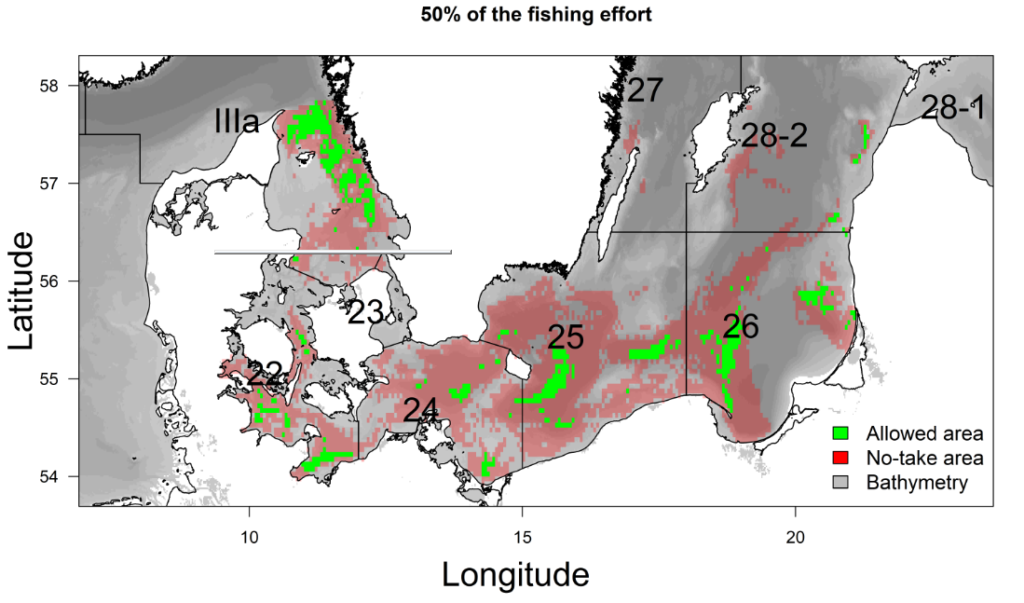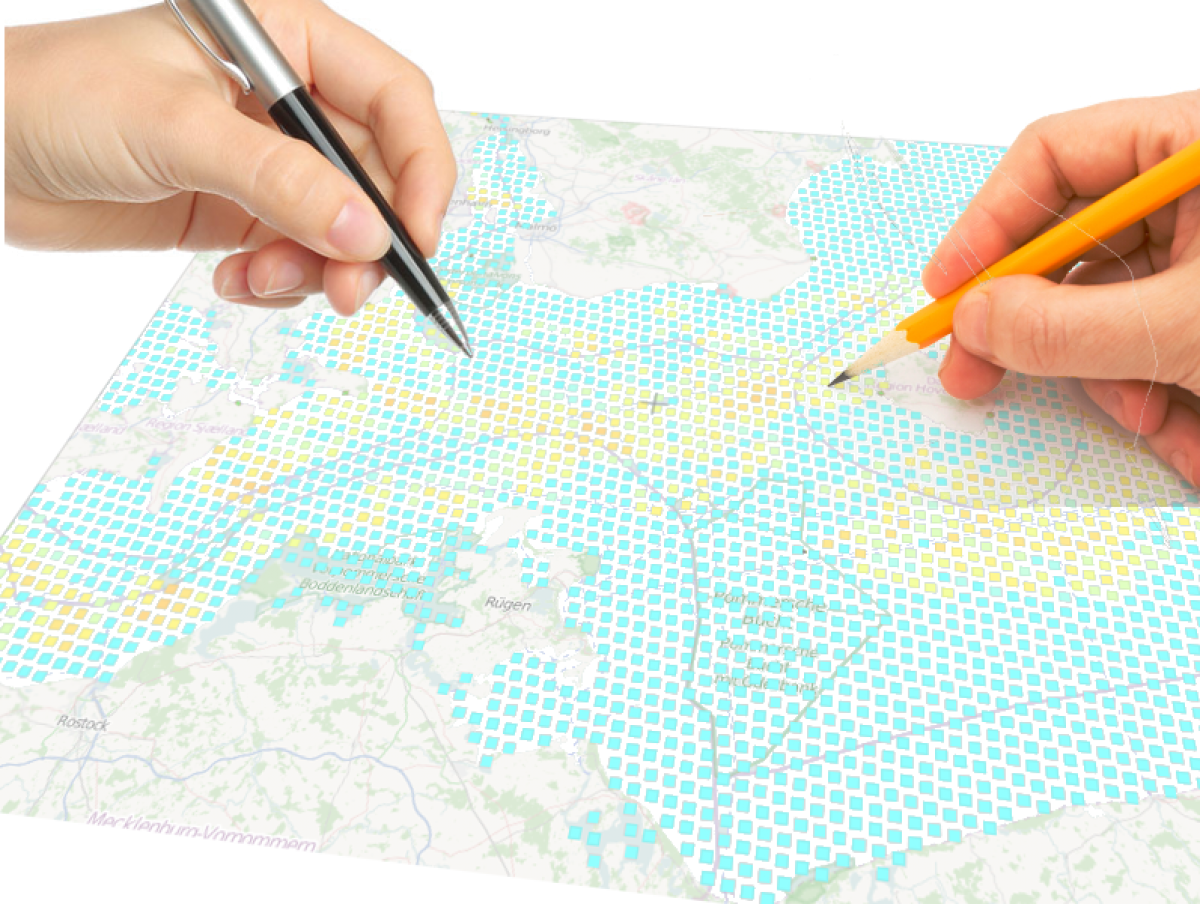Lessons learnt:
• Restricting fishing areas does not equate to reducing ecosystem impacts on benthic habitats.
• Displacing fishing efforts can offset the gains in partial habitat protection.
• The benthic status in Kattegat improves more than the benthic status in central Baltic when using spatial management measures.
• Largest improvement is achieved by protecting long-lived communities from high-impact fisheries.
• Healthy fish stocks reduce the risk to both the seafloor integrity and fishery economics.
see to see what happens when contracting for example 50% of the fishing effort extent on the core fishing areas, on a pdf presentation here from the HELCOM Action project. Full publication at https://doi.org/10.1016/j.fishres.2020.105681


Francois Bastardie is a DTU-Aqua Senior Scientist and method developer in the Section of Ecosystem-based Marine Management with a Ph.D. in Biological Science. He has been involved in several national and EU Funded projects developing expertise in spatial fisheries and fisheries databases. He has a strong background in modeling fishing and the bio-economic dynamics including developing agent-based models for combining marine ecosystems and natural resource extraction models, fisheries economics in a mixed fisheries perspective. He has an experience of 10 years leading to more than 35 peer-reviewed publications by conducting scientific-based fisheries management evaluation with scenario-testing evaluation and simulations, including fleet dynamics and consequences on the economy of fisheries, population dynamics and fish stock assessment. He was in charge of the evaluation of some of the EU long-term fisheries management plans with consequent participation to ICES and STECF working groups, including giving advise from regional to international policy makers.

Author: Francois Bastardie
Francois Bastardie is a DTU-Aqua Senior Scientist and method developer in the Section of Ecosystem-based Marine Management with a Ph.D. in Biological Science. He has been involved in several national and EU Funded projects developing expertise in spatial fisheries and fisheries databases. He has a strong background in modeling fishing and the bio-economic dynamics including developing agent-based models for combining marine ecosystems and natural resource extraction models, fisheries economics in a mixed fisheries perspective. He has an experience of 10 years leading to more than 35 peer-reviewed publications by conducting scientific-based fisheries management evaluation with scenario-testing evaluation and simulations, including fleet dynamics and consequences on the economy of fisheries, population dynamics and fish stock assessment. He was in charge of the evaluation of some of the EU long-term fisheries management plans with consequent participation to ICES and STECF working groups, including giving advise from regional to international policy makers.
View all posts by Francois Bastardie


